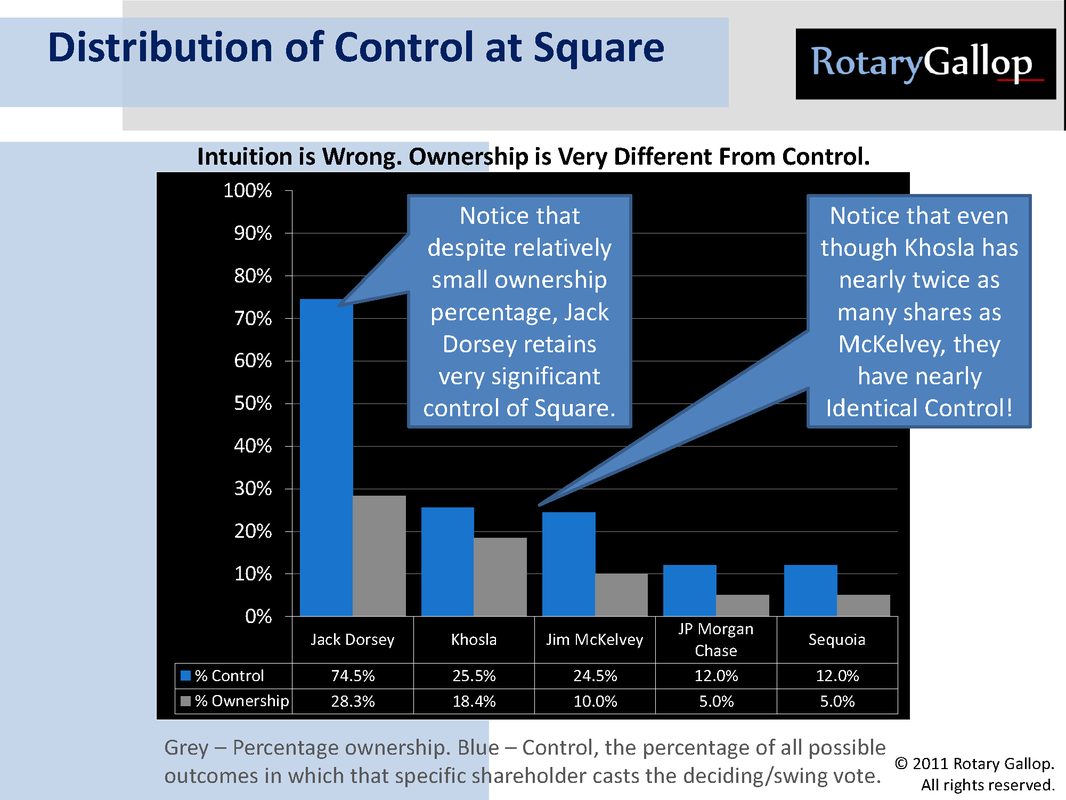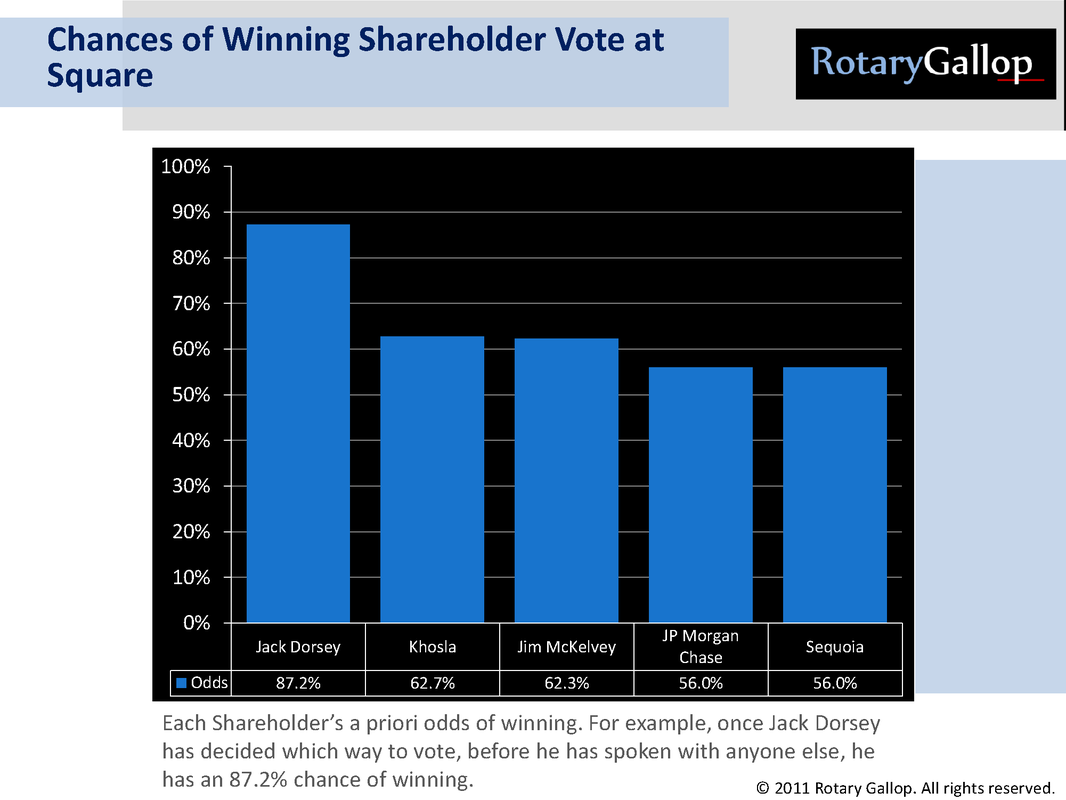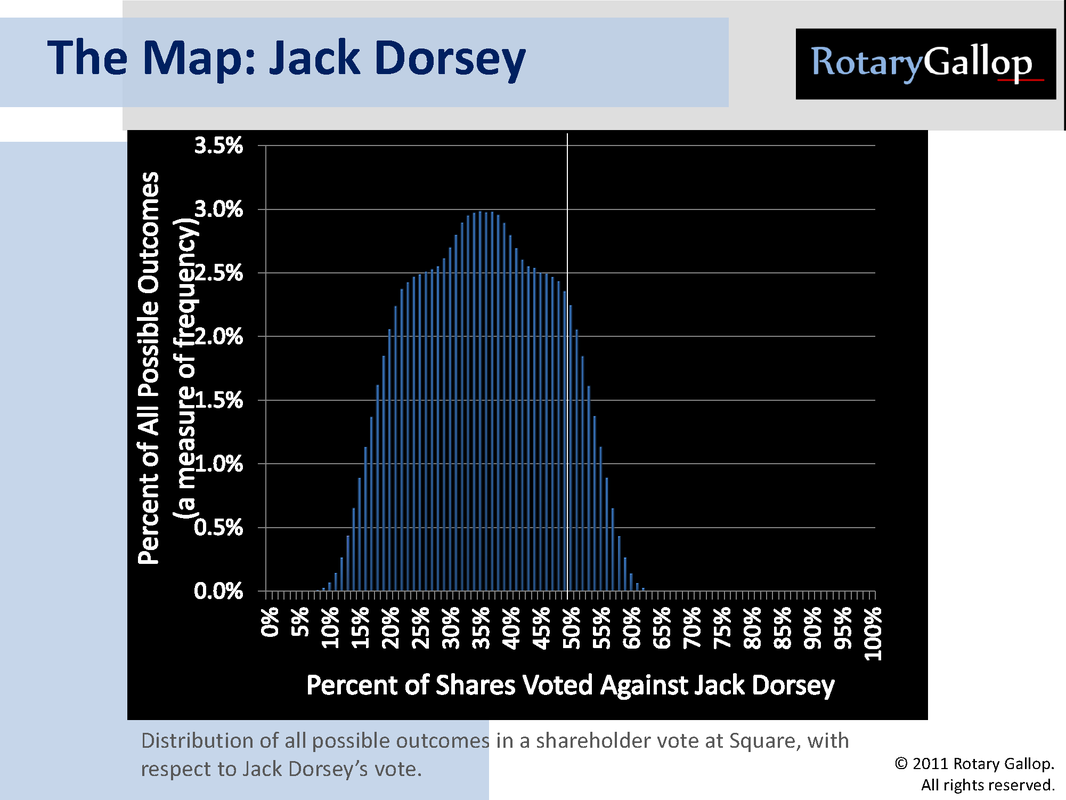Owen Thomas over at Business Insider had a great article on the ownership breakdown of one of our favorite, power to the people companies, Square: REVEALED! Here's Who Owns How Much Of Square. So we thought we'd take the time to see how much control each of the shareholders at Square has.
As readers of Rotary Gallop know, Control is almost always very different from what percentage ownership implies. I calculated control among the shareholders at Square based on the ownership numbers in Thomas's article and thought you might be interested.
Two interesting points:
As readers of Rotary Gallop know, Control is almost always very different from what percentage ownership implies. I calculated control among the shareholders at Square based on the ownership numbers in Thomas's article and thought you might be interested.
Two interesting points:
- Jack Dorsey retains much more significant control than one might have guessed. With 28% ownership he retains ~75%control and an ~87% chance of winning a shareholder vote.
- Also very interesting is that while Khosla owns nearly twice as many shares as McKelvey they have nearly identical control!
Caveats and Addendums: I don't have a copy of Squares articles of incorporation. There are two things to check to verify the accuracy of these calculations if available. One is that the line of passage is 50%. And the other is that each share gets only one vote. However my understanding is that in the vast majority of VC deals with major shops these things are true. VCs don't like to have different rules in every company they are in.
One thing that probably does apply to square is that VCs have preferred shares that vote without common for veto rights on certain issues. This however doesn't change the calculations, it just mean they apply only to the majority of things that do not require a special preferred vote.
One thing that probably does apply to square is that VCs have preferred shares that vote without common for veto rights on certain issues. This however doesn't change the calculations, it just mean they apply only to the majority of things that do not require a special preferred vote.



 RSS Feed
RSS Feed